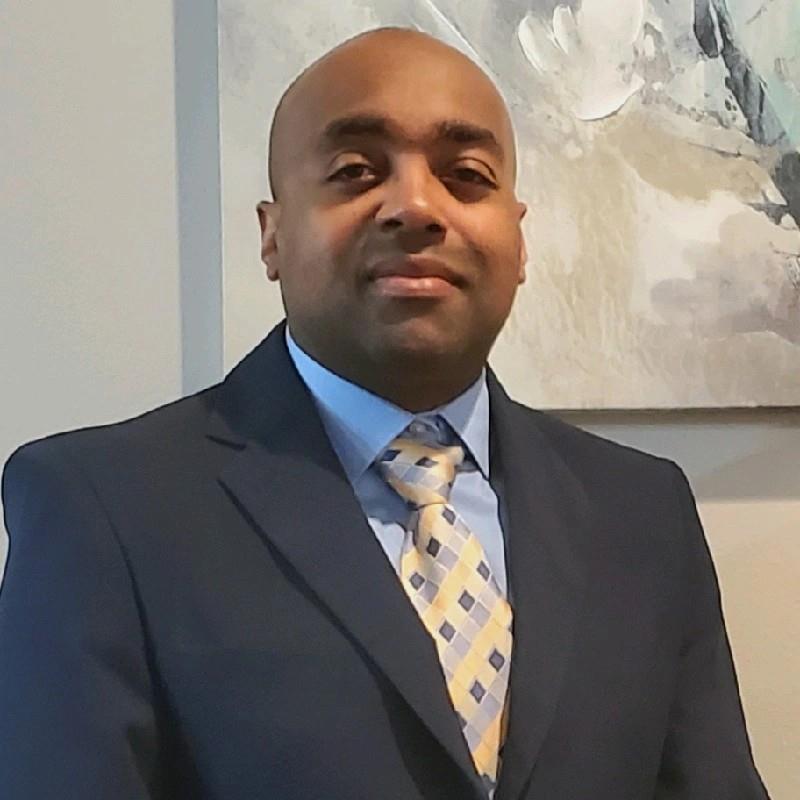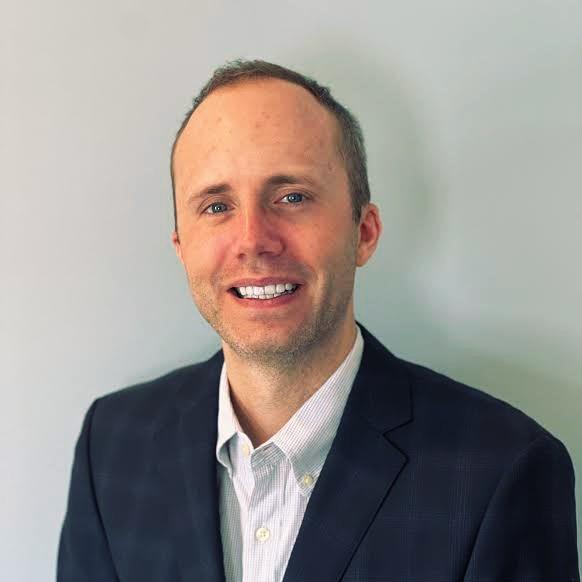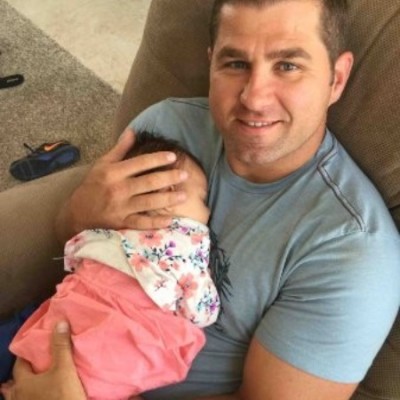
The concept of a contract sales force has allowed many industries to boost productivity and sales with minimal risk. In the medical healthcare industry, this service was optimized by Rick Barnett, founder and President of Rep-Lite®. In this episode, he joins Samuel Gbadebo to share how his company has revolutionized healthcare by providing a quality sales force. Rick also talks about how he got into the medical sales industry coming from a military background. Stay tuned!
—
Watch the episode here
Listen to the podcast here
The Benefits Of Using A Medical Contract Sales Force With Rick Barnett
We have with us, Rick Barnett. He founded a company called a Rep-Lite®. They’re a contract sales company in the medical sales space. They have a contract sales force that they hire people onto and then contract that sales force to medical manufacturers, like medical device companies and pharmaceutical companies, to sell their products. I’m not going to spoil it by telling you all about that. I’m going to save that for the interview. This is going to be part one. As always, thank you for reading. I do hope you enjoy this interview.
—
Rick, how are you doing?
I’m good. How are you doing?
Rick, I’m going to let you do it. Why don’t you tell everybody who you are and what you do?
I’m the Founder and Steward of a company called Rep-Lite. We’re a contract sales and service company in the medical space.
How did you get to this space? What is your career background?
After the military and a short sales career, I was fortunate enough to go in to be a surgical first assistant and when I came out of that, minimally invasive surgery was starting. I’m a technology guy, so I jumped on the minimally invasive surgery. Through that, I got the fortune to work with a company called Stryker Endoscopy. Back in the day, what they asked me to do was to come on and help their client’s hospital operating rooms to be able to thrive in disruptive technology.
I came on with striker. We built a team of about 800 over several years and then I had the blessing to go to a surgical, did the same thing in surgical. I‘m covering the nation as a VP and several years ago, we decided, “We’re having great success in doing this for the companies that I work with. Why don’t we open this up to several companies?” We launched Rep-Lite and no looking back.
I want to take it back to college. Do you know you are going to be in this kind of career? Was it military-focused? Where did the military fall in and what did you want to do when you were in college?
I grew up in the mountains of North Carolina on a little farm. My father and grandfather were in the military, but I had no desire to go in the military. What I did know was I wanted to go to college because no one in my family had been to college previously and the military was a way for me to be able to afford to go to college. I did my first two years in junior college. On accident, I went to see a recruiter and enlisted in the US Army.
[bctt tweet=”Compassion for the care of the patient and the ability to stay with the process. The reps who’ve been successful have those innate traits.” username=””]
I was fortunate to serve this amazing country in the US Army and Special Operations Group, doing crazy stuff like jumping out of airplanes. I came out of the military and at the time, the University of Hawaii was doubling on the GI bill. Here’s a guy from Western North Carolina who goes to the University of Hawaii to finish his Bachelor’s degree. Coming out of that, my father is in insurance sales. Of course, I said, “I can do insurance sales.” That’s where I cut my teeth in selling. It was in insurance.
You’ve had your military experience and you’re in insurance sales now. Talk to us a little bit about what that experience was like and what even turned you on to medical sales?
I was relatively young. I had more money than I’d ever made in my life. I felt like I was rich, but I was working in the same company where my father was working and our territories were up against each other. I was seriously having the time of my life. I was selling, talking to people, I thought I was creating value, but I was impeding on my dad’s career of having seventeen years in the business. I thought, “What do I want to do?” I always thought I would help people. I went to a surgical tech school, came out and went surgical person assisting. The next thing I know, I’m standing in ORs, helping surgeons do surgery as a first assistant.
When you were in that experience as a first assistant, what introduced you to the sales aspect of that type of work? Did you meet a sales rep? Did you say, “I want to do something a little bit different, go beyond this?” What happened?
I was born with a passion for sales and to be honest with you, being in the OR was awesome, but I wasn’t able to sell. Your patients were asleep, so you’re not selling much at that point. This was in a time when minimally invasive surgery was starting to come along. There was technology. There was minimally invasive surgery. I sidestepped and started running a department that did all the electronics and all the things around in minimally invasive surgery. I grew that department. What happened is that Stryker had been one of my customers and I was in charge of procurement of product and all that thing.
They come in and they send a VP. They’re like, “We don’t have to come back in here. Our products are taken care of. They work. Why don’t you come and build us a junior sales program here at Stryker?” That was the launch. I took the job, went to Stryker, was Employee 101. Fast forward years later and there were 800 of us around the country. It was a real blessing to be able to go in and do that.
What was the title of your role going into Stryker? You didn’t go in as a sales rep, per se. You went in as a leader.
The deal was is that all of our junior reps were tied to capital sales deals. Although I went in as a sales leader, I was going on sales calls with reps every day because we were selling the whole package. We’re selling equipment but also having a person in there to help manage the equipment and the junior rep role. I was in the C-Suite of every hospital in the country. Over the years, I was able to sell the C-Suite, sell all the way down to SPD, a cross-sectional selling platform.
I ask everybody this question. I’m going to ask you the same one. Especially you, because you saw so much experience with sales reps. Even though you weren’t necessarily selling yourself, you were coaching and watching probably hundreds of different styles of how to sell. Talk to us a little bit about the top skills that you saw that consistent performers consistently demonstrated.
The reps that I have admired and the rep that I’ve tried to be in my businesses, first and foremost, have a deep care for the patient. Regardless of what vertical you’re in, you have to understand that every person that is a patient is someone’s mother, sister, father, brother. They’re a human that needs care and you play a role in the healing of that person. That’s the number one thing that I see successful reps do.
They feel ownership and accountability for that. The second thing and this may be out of the left-field, but I think that follow-up is probably the number two thing, the caring of the patient, being persistent and following up with the actions that are needed. I once read a stat that it takes fourteen touches for a sales rep to make a sale, but most reps quit after three.

I’ve been there. I’ve given up on a potential client before because I touched him so many times and I’ve never made a sale. I think the short answer is compassion for the care of the patient and the ability to stay with the process. Call it follow-up, resilience, whatever you want to call it, but the reps who I’ve seen be successful have those innate traits. I’m not sure that you can teach those. You may, but they’re in you and all the other things, the hustle, the determination. All of that falls into those two things.
I want to touch a little bit on your military experience. How much would you say that your military experience played into the rest of your career? Whatever you learned within the military, how did it play out as you were making these different moves in your actual career?
I tell people this all the time, Sam. If you came to me with $10 million and said, “I’m going to give you $10 million, but your military experience goes away,” I would turn you down. If you came to me and said, “Here’s $10 million, would you go back through it?” I’ll turn you down. The point of that is, it changed me as a man and as a human.
It’s the toughest thing I’ve ever been through, but there is something about being trained to survive and understanding the disciplines that come with that is unorthodox in training. You can train to be a great salesperson, great engineer, all of those things, but when you’re training to survive and protect and serve a country, the stakes, in my mind, are the highest they can be.
Let’s go back into your first role. You were creating a sales team. Did you do this in different verticals or was it around minimally invasive surgery?
It started around minimally invasive surgery and then it spread throughout the divisions. Stryker is a large company and when I was there, they had fourteen divisions. It started to grow and spread outside of the divisions. If you look at a sports team, because you’re in Los Angeles and I’m in Atlanta, we can use the current NCLS. If we look at the Atlanta Braves, they have a farm system underneath their professional team. If the Atlanta Braves lose a second baseman in the game, they have someone that’s playing in a farm or AAA team that they can call up to plugin that role.
I don’t think in the medical space we’ve ever thought about having a backfill when we lose a rep. What we did at Stryker and Intuitive is we put a AAA ball team together so that when you did lose a rep, you didn’t have this huge gap in revenue, competitive threats, all those things. A lot of our clients use us to create their AAA ball team. I think there’s a value there not only for the current sales force but also when there is a hole in the current sales force, and then they have an immediate backfill that understands the playbook, knows the product portfolio, knows how to speak to surgeons, so it’s a plug and play model.
When you did this in Stryker, how long was your stay in Stryker building teams?
Fifteen years.
In Intuitive Surgical, how long?
[bctt tweet=”The medical space has never thought about having a backfill when losing a rep. ” username=””]
Five years.
What inspired you to say, “I’m going to leave into the surgical now. I don’t want to do this for another company. I need to do this for myself?”
I looked back historically at all the KPIs and all the measurables that we were giving and they were good with both companies. We had these junior reps. We had higher penetration of our product portfolio, higher ASP, trust with our customers and our surgeons. Seeing that, I said, “This should be offered to all companies.” It wasn’t company-specific. It was company agnostic, to be honest with you.
I felt there was a need. We’ve been around for several years and continue to grow. I think we hedged our bet right there and there was a need. Companies now come to us and they’re like, “We’re going to have an expansion, we’re launching a new drug, or we made an acquisition that we need help with, but we don’t want to disrupt our current sales force. Can we leverage you and do it in a non-risk way that saves us time and money?” That’s our value proposition.
The contract sales force is out there. There are some that come to mind, some of the pharma space and medical device space. What makes your contract sales force company a little different than what people typically know a contract sales force to be?
We are more interested in being a partner than a contract sales force. I’ll explain to you why. When we engage with the company and let’s say that a company XYZ says, “We need fifteen of these, whatever.” We hire various titles all over the board. We go out based on our client’s facts, find the people, put them through our process, hand them to our clients for the final interview.
We hired them. They’re a Rep-Lite employee, that’s the typical contract model, but what our end goal is somewhere after the twelfth month, we want this person to have proven themselves and be able to go directly with our client. We have a vested interest in putting in talented folks who we believe are going to run hard, fight for success and end up going to the major league team.
A candidate finds you guys and says, “I have this going on in my background. I’ve done this with my experience, but I want to work for Stryker.” You guys say, “Come work with us, then we’re going to allow you to work with Stryker through us, and then incentivize Stryker to take you on as a sales rep.”
We have less than 1% of bad attrition. Bad fishing is when someone calls us and says, “Rick, I don’t want to work here anymore. I quit.” Over several years, less than 1%, which I’m proud of. We have over 96% of good attrition, which means our clients take our people. For us, it’s critically important, Samuel, that we put good people. Here’s the other thing.
Let’s say that we put a candidate in with a company and in four months, they’re not working out and not doing what they’re supposed to do. That client can call me and say, “This person’s not working out.” I have to replace that person with no additional money. We remove all the risks of our client’s table. We’re not a staffing company and not a recruiter. We’re somewhere in the middle of that. I have one client that calls us the Uber of medical device sales.
—
That was Rick with Rep-Lite, such a valuable service to allow people to come on as a contract sales rep. Have a hired position and then earn your way into a desired medical manufacturer. It’s an amazing service. We always do our best to have great guests on our show and one guest that I also want to talk about is Chris Larsen. He began his career in medical sales at 25 years old, but his true path to financial freedom was as a real estate investor.

He spent eighteen years in the OR and you made a lot of money in that space, but then he hung it all up. A career where he was making $300,000 per year, he hung it all up because he wanted to put himself in a position to spend more time with his family and now his goal is to help others achieve financial freedom as he has achieved it himself.
If you’d like to learn more about his secrets and how he became financially independent, how you can become financially independent, then you got to get a copy of his book, Next-Level Income. You can get that book at NextLevelIncome.com/book. To be able to walk away from a career that was providing $300,000 a year speaks volumes. His business is doing well, that he was able to take himself and experience financial freedom. Who wouldn’t want to be a part of that?
What he is doing truly allows people to become financially independent, and you’re going to learn so much from this book. I’m on board. Doctors, medical sales executives and sales reps are on board. Everybody’s on board because they see the value and they’re getting that goal of being financially free. If you have money to invest and you want to put it into action, then this is the man you want to do it with.
You might read this episode and think to yourself, “I love what Rick Barnett is doing with Rep-Lite. I love what Chris has done with his opportunities. I’ve been trying to get into the space and I can’t seem to figure it out.” Maybe you’re someone that you haven’t been able to land the interview or you’ve gotten the interview, but for whatever reason, you’re not getting to the second round, third round and you’re not getting to an offer and you’re thinking to yourself, “What can I do? What can I do next?”
I want you to visit EvolveYourSuccess.com and select Attain A Medical Sales Role. It’s going to take you to a short application, allow you to set up a call with us and allow us to help you get into the position of your dreams. It’s too often do we see people that they’re trying, qualified, ready, but they can’t get to where they want to be. They’re looking for help, we’ve reached out our hand and we’ve been able to help them. We’ve helped many people get into the positions they want, and we want to help you if that’s what you’re trying to do.
If you’re a medical sales professional, and you’ve been looking for different ways to market yourself, brand yourself and even sell, and you’ve been seen the LinkedIn platform, and you’re saying, “There is something going on here. I know people are selling on this platform, but I’m not quite sure how to do it.” You’re seeing thought leaders and you’re saying, “I know so much. I’m respected in my space. My voice needs to be heard because I can provide a lot of people some value.”
I want you to go to EvolveYourSuccess.com, select Improve Sales Performance and check out our LinkedIn Selling Programs. It’s a program designed to help you sell on that platform and truly establish yourself as a thought leader. You’re going to be able to set up a call with us and we can have a conversation. That’s going to provide you value no matter what you decide, but a conversation to talk about what you’re trying to do and how we can help you do it.
As always, we do our best to provide you with guests that have some value to bring some information to provide, some knowledge to provide, to everybody, not just people that want to get in, sales reps and sales leaders too. You need to tune in next episode because Rick Barnett is not finished. He has a part two and he takes it home with what he does at Rep-Lite and how he’s changing lives for people.
Important Links:
- Rep-Lite
- Stryker Endoscopy
- Intuitive Surgical
- NextLevelIncome.com/book
- Attain A Medical Sales Role
- Improve Sales Performance
- LinkedIn Selling Programs
About Rick Barnett
 Mr. Barnett has held many senior level executive positions within the medical device arena. Mr. Barnett is a performance-driven sales leadership executive with expertise in building client relationships, developing and executing winning sales strategies, and the selection and development of top talented teams. Mr. Barnett is recognized as a leader with a reputation for advancing successful business development campaigns, leveraging core strengths, and capitalizing on solid client relationships.
Mr. Barnett has held many senior level executive positions within the medical device arena. Mr. Barnett is a performance-driven sales leadership executive with expertise in building client relationships, developing and executing winning sales strategies, and the selection and development of top talented teams. Mr. Barnett is recognized as a leader with a reputation for advancing successful business development campaigns, leveraging core strengths, and capitalizing on solid client relationships.
Mr. Barnett holds a Bachelor’s degree in Health Services Administration from the University of Hawaii. His background includes building businesses with companies like Stryker and Intuitive Surgical over the past 25 years. Mr. Barnett is a visionary who commonly recognizes “outside the box” opportunities while driving the current business to surpass established goals which has allowed him to function in a consulting capacity for several top industry leaders.
Mr. Barnett currently serves as Founder of Rep-Lite. He is responsible for spearheading a strategic development process that allows both manufacturers and facilities to experience maximized potential with limited resources. Mr. Barnett has initiated & instituted this process to allow several manufacturers to experience exponential growth within the divisions that it was applied. Mr. Barnett has a proven track record of over 30 years of achieving or surpassing planned goals in every position.



























































































